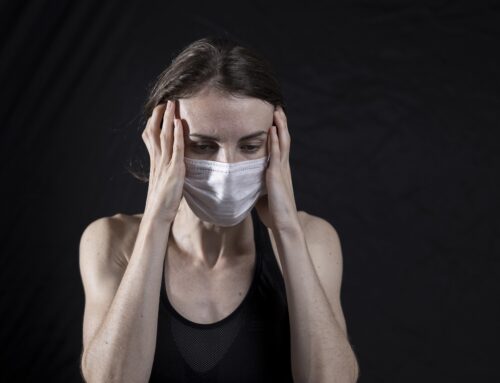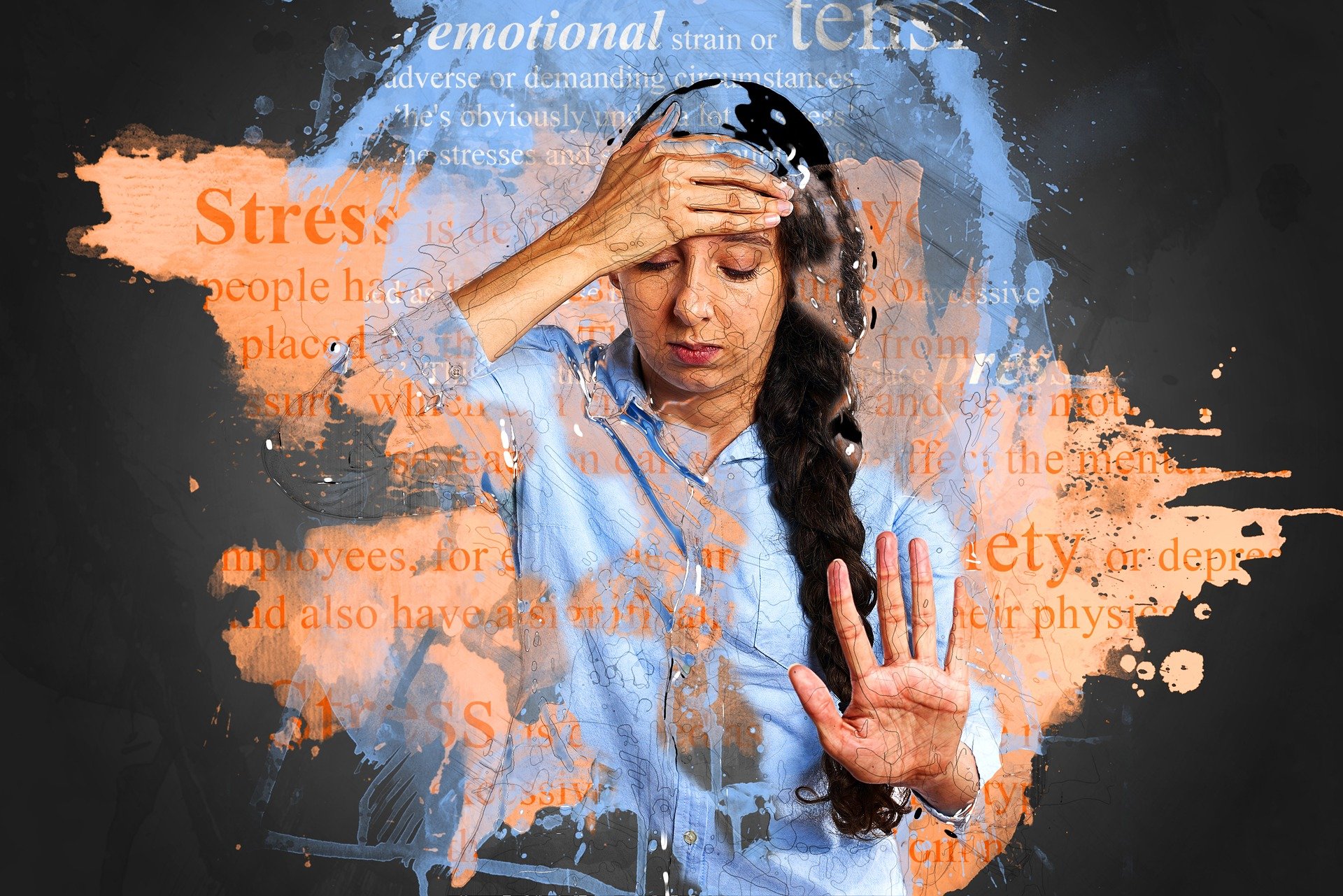
Anxiety is something we all experience from time to time and our understanding of it has increased greatly over time.
Anxiety is the bodies’ natural physical survival response to a perceived or actual threat. This is often referred to as the “fight or flight” response when this is activated the body floods with hormones one of which being adrenaline. The body experiences a series of physiological reactions it is these reactions that help to keep us alive as they help to keep us alert and responsive to a danger that we may need to remove ourselves from. Our brain thinks it’s in danger and our body gets ready to fight or run away.
When all this happens at night-time it is particularly uncomfortable, you may find that your mind is racing, and you can’t stop your thoughts. You may be focused on the worries of the day or anticipating things on your to-do list for the next day. There may be catastrophic thinking where the cat at the door becomes a lion, the puppy dog an Alsatian …
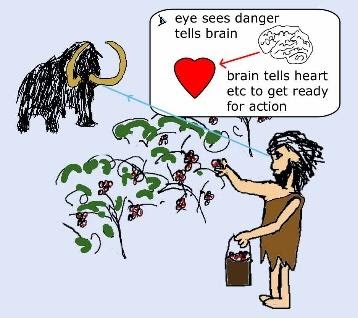


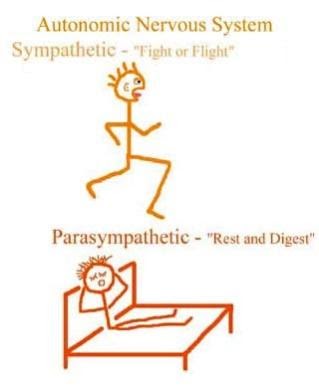
This perceived “stress” can cause the body to experience an adrenaline rush, which makes it incredibly difficult to get to sleep and an increase in our breathing rate which can leave us feeling exhausted or “on edge”.
However it is important to flag at this point, the other side to anxiety which includes excitement e.g. if I don’t feel a bit anxious about an important exam, a first date, a new adventure, a game, maybe they are not so important to me after all. In an exam or sport, the adrenaline and cortisol release response can help us to focus more clearly and perform to the best of our ability.
Some Symptoms
Physical
- Pounding heart, tightness in the chest
- Quickened breath, shallow breathing
- Dizziness, headaches, pins and needles in the hands or legs
- Upset stomach, nausea, loss of appetite and diarrhoea
- Muscular aches and pains, tightness in the shoulders and neck accompanied by shaking or tremors
Psychological
- Excessive worry about past or future events
- Loss of concentration, inability to focus, irritability, confusion and indecision, disturbed sleep and vivid dreams
- Catastrophic thinking
Behavioural
- Avoidance of situations in particular social, compulsive or obsessive behaviours, increased or dependence on drinks or drugs
Getting to know my Anxiety – my ALARM system
-
Attention
-
Listen / Look
-
Assess
-
Reset
-
Mindfulness /Minding ourselves
Like the alarm that goes off in the house, anxiety is not a negative thing! Albeit yes, it is an uncomfortable inconvenient experience. If I simply work at stopping the alarm or focusing on the noise and getting rid of it I miss the point. The alarm is positive feedback in the situation – it is alerting us to something that needs or attention. Be it the toaster that is about to go on fire, or an unwanted visitor and we need to pay attention and look and listen and investigate and take the suitable action with care and due diligence.
ATTENTION
Our anxiety and our panic like that alarm is valuable information to us that we need to slow down and pay attention to some aspect of our lives. We can ask ourselves what happens to set it off in the first place?
LOOK / LISTEN
Typically when we scratch the surface of the anxiety, it is telling us that we are human and not supermen and women i.e. we need food, sleep, balanced lifestyle, relationships, self-worth, empowerment, freedom to express who we are. We are been reminded that going through the different stages of change physically, emotionally, sexually, spiritually is a challenging process and it is very normal to be scared and try to avoid the uncertainty and discomfort.
ASSESS
Is there a link between our social media use and our anxiety?
Our social engagement system or vagus nerve extends from the back of the head into the forehead through the face and down into the chest and solar plexus/ butterflies area into the abdomen. It receives information from circuits in our brain in relation to our safety and connection with others. This nervous system is built in order to help us connect with others, read their body language, facial expression, social cues signalling to us whether it is ok to come close or keep further away. In the same way, as this system is responding to our relationships in our physical world it also becomes activated in our virtual world when we are on social media and checking up on our friends and if they are thinking of us liking us finding us interesting wanting to be with us.
The bright background on digital screens is stimulating eye muscles and retina. Switching them off is easy but switching off our physical response is not so easy. We can switch off the light but find ourselves our bodies are still ready for action because our brain has been in overdrive processing data and making analysis. Just because we tell ourselves to slow down can to our bodies feel like pulling the breaks on a speeding vehicle
Why do our worries or anxieties tend to accelerate at night-time / our sleep time?
We might wonder about this especially as this is the time when we can do nothing about them! This is the time of the day when we can have space to let in the backlog of data that is looking to be uploaded like the uploads that are waiting in the background to run on your phone or computer. We can have thoughts and reactions to certain events or relationships that happened through the day running in the back of our mind waiting to be processed. When the light goes out in our bedroom, the light can go on in our brain which can be very unsettling and sometimes very frightening if in turn our bodies release stress hormones to deal with the perceived threat and we initiate a stress loop
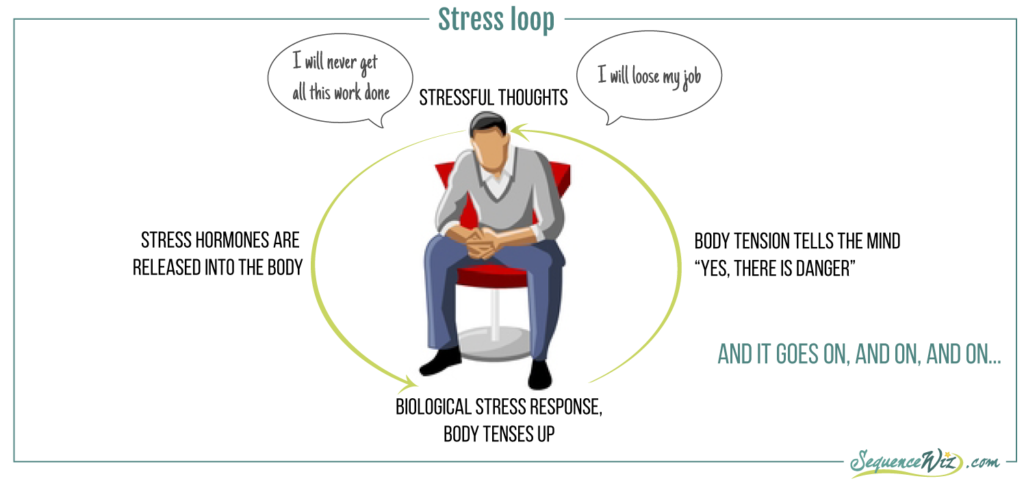
RESET
Gaining control over our breathing involves both slowing the rate of our breathing and changing our breathing style.
- Ensure that you are sitting on a comfortable chair or laying on a bed
- Take a breath in for 4 seconds (through the nose if possible
- Hold the breath for 3 seconds
- Release the breathtaking 6 seconds (through the nose if possible)., then pause slightly before breathing in again.
- placing one hand on your stomach and one hand on your chest. The hand on your stomach should rise when you breathe in.
- Diaphragmatic breathing, breathing deeply and slowly. Visualize filling up the lower part of your lungs just above your belly button like a balloon…and then exhaling slowly.
- Try to practise at least once or twice a day at a time when you can relax, relatively free from distraction. This will help to develop a more relaxed breathing habit.
MINDFULNESS / MINDING OURSELVES
TWO EXERCISES TO UNWIND BEFORE BEDTIME
- JOURNALLING
Keeping a journal can be very helpful to slow us down when we are preparing for bed and our mind is spinning out. Writing down the thoughts without judgment or engaging with them to sort them out creates a space inside just to be present to ourselves with kindness and respect as we have been for others.
- This is a way of keeping an inventory of your day: what happened, who has been in your day, things that were said, things were difficult, how you really felt today.
- Writing down the things that went well today can be the inspiration and beacon of light for tomorrow when we begin to doubt.
- We can be creative and fantasise on what could be different tomorrow recognizing that each day brings new opportunities and a fresh window on your life experiences. At the same time, we are releasing any pent up energy in our bodies through your pen our digital device.
- Also, if you prefer you could draw an image to represent your day

SELF – EMPATHIC EXERCISE
- Begin by making yourself comfortable, feet connecting to the ground beneath you, your back supported by the chair/bed, the contact points between your sitting bones, your shoulders and the chair/bed beneath you.
- Noticing the rise and fall of your breath in your body and the contact sensation on contact with our breath and your nose, throat, chest.
- Placing one hand on the back of your neck and one on your forehead.
- Feel into the sensations of the contact and touch of your palm on your skin.
- Bring one hand to your chest and one to your solar plexus.
- Feel into the sensations of the contact and touch of your palm of both hands resting on your body
- This soothing gesture sends messages back to the thinking mind that all is well and you are in control
- Stay with the rise and fall of your breath in your body – ENJOY!
As neither you or I were never meant to be alone, our anxiety is reminding us that we need to reach out to others and ask for help. Sometimes that is family, friends and sometimes it is a health professional but at the end of the day no matter whoever or however we deal with our anxiety, we need to keep the goal in sight – becoming who we are meant to be and living our lives to the full will be the end goal.

